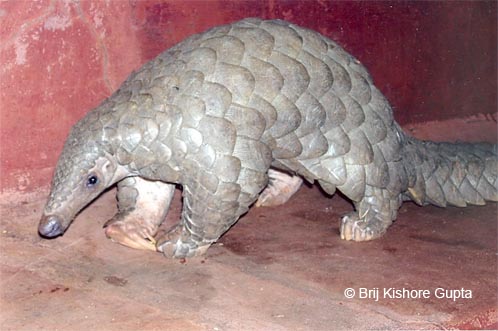PANGOLINS
A lesser known species in illegal wildlife trade
With their armour scales, don’t pangolins remind you of Roman gladiators? These ‘scaly anteaters’ are insectivorous mammals and are mainly nocturnal. They are extremely useful to us as they feed on termites that destroy agricultural crops.
Of the eight species found worldwide (four each in Asia and Africa), two are found in India- Indian Pangolin and Chinese Pangolin.*Download the pangolin factsheet*

WHAT THREATENS THEIR FUTURE?
Pangolins are one of the many unheard of victims of illegal wildlife trade. In India, pangolins are trapped and killed for local trade and to cater to international markets in China and South-East Asia where there is a heavy demand for their scales, skin and meat.
Reports have indicated a growing demand for pangolin meat in India, which has the potential to put the species under immense pressure.
How are pangolins exploited?
- Pangolin meat is deemed a delicacy among several communities and is also consumed because of its alleged medicinal properties.
- Pangolin scales are widely used in traditional oriental medicines as an aphrodisiac and to cure ailments ranging from asthma and psoriasis to cancer. However, the medical efficacy of the scales remains unproved!
- Pangolin scales are also made into rings or charms.
- Pangolin skins are used to manufacture leather goods like boots and shoes.
Did you know that pangolins are ritualistically hunted during 'Shikar Utsav' in eastern Indian states?
The extent of this illegal trade
Pangolins are among the most frequently seized species smuggled in Asia. Seizure reports from 2009 to 2013 have revealed that around 3350 pangolins were poached in India alone. However, it may only be a conservative estimate since a large part of this illegal trade remains undetected!

Copyright 2015 WWF-India | All Rights Reserved.